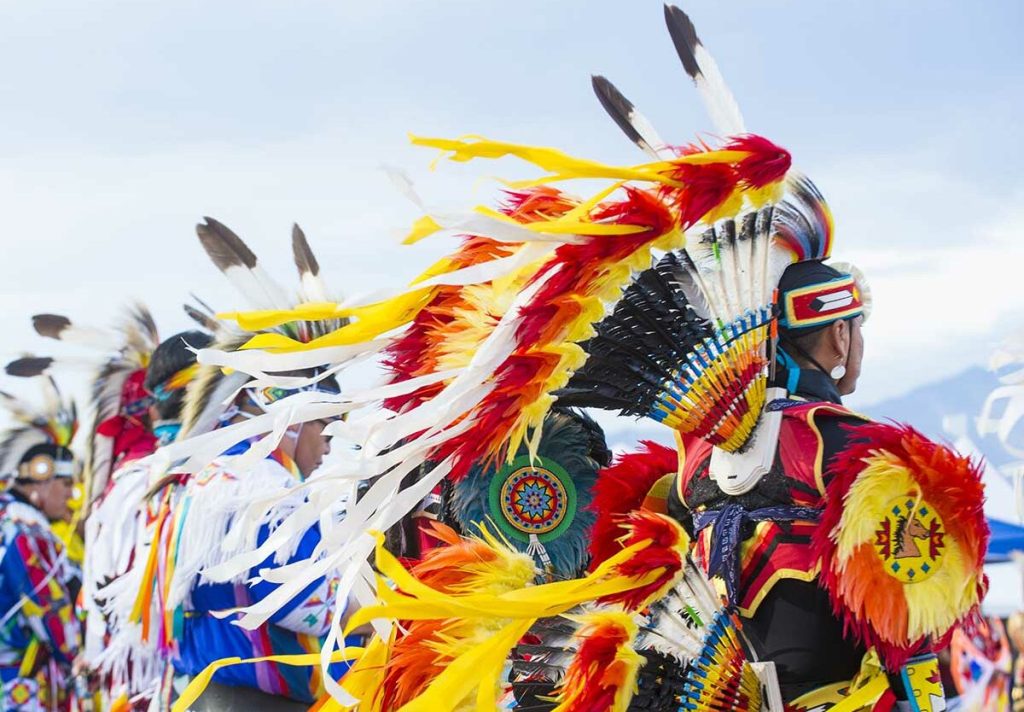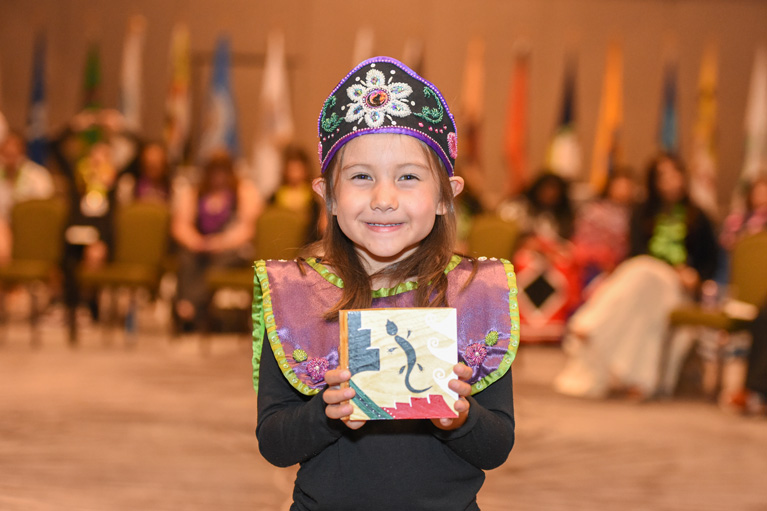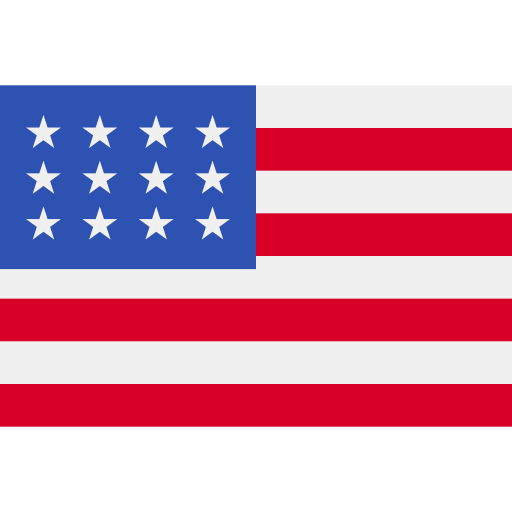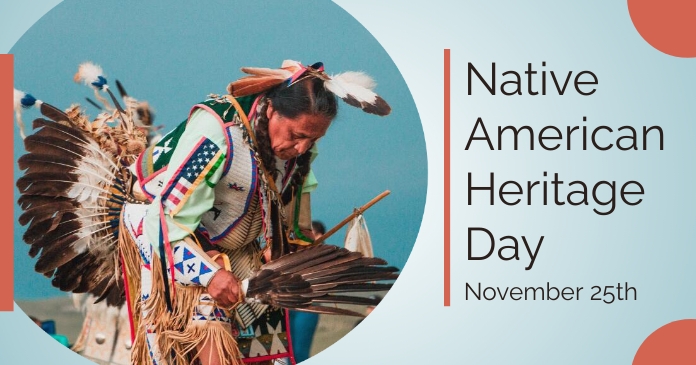No products in the cart.
Viraldes News
Celebrating Native American Heritage Day: Honoring the First Peoples of the United States
The Origins and Purpose of Native American Heritage Day
Native American Heritage Day, celebrated annually on the Friday after Thanksgiving, is a day set aside to honor and recognize the rich cultural heritage and contributions of Native Americans to the United States. The day was officially designated in 2009 when President Barack Obama signed the Native American Heritage Day Resolution into law. This day follows Native American Heritage Month, which occurs throughout November, as a means of fostering deeper understanding of Native American history, traditions, and achievements.

Although Native American Heritage Day aims to promote appreciation and respect for Indigenous cultures, its timing – immediately following Thanksgiving and coinciding with the consumer frenzy of Black Friday – has sparked criticism from within Native communities. Many argue that the day’s significance is overshadowed by Thanksgiving, a holiday that some Indigenous people associate with painful colonial history. Despite these critiques, Native American Heritage Day remains a vital opportunity to engage in education and celebration of Native culture and history.
The Significance of Native American Heritage Day: A Time for Reflection and Education
Native American Heritage Day serves as an educational platform to raise awareness about the contributions and history of Native peoples. It encourages schools, organizations, and individuals to engage in meaningful dialogue and activities that honor Native traditions, languages, and ways of life. The day plays a crucial role in addressing long-standing misconceptions and promoting a more accurate understanding of Native American history.
One way to celebrate the day is by learning more about Native cultures, either through visiting museums, watching documentaries, or attending cultural events hosted by Indigenous communities. For instance, participating in events like “Rock Your Mocs,” where individuals wear moccasins in solidarity with Native peoples, helps raise awareness and respect for Native traditions. Native American Heritage Day also serves as an opportunity to reflect on the ongoing struggles Native communities face, from land rights to preserving languages and traditions in the face of modern challenges.
Challenges and Criticism of the Day’s Placement: A Controversial Timing
One of the most common criticisms of Native American Heritage Day is its placement on the day after Thanksgiving, a holiday that many Native Americans view as a reminder of colonial oppression and the devastating impact European settlement had on Indigenous populations. Thanksgiving is often referred to by Native communities as the “National Day of Mourning” or “Un-Thanksgiving,” underscoring the historical trauma associated with the holiday. For many, the fact that Native American Heritage Day falls on Black Friday, a day synonymous with consumerism and commercial excess, further diminishes the day’s intended purpose.
Critics argue that the timing of Native American Heritage Day marginalizes its significance, reducing the opportunity for reflection on Native contributions and history. However, despite this critique, many Native and non-Native people continue to advocate for the day’s importance, using it as an opportunity to educate and celebrate the resilience and diversity of Native American cultures. The day serves as a reminder that Indigenous people’s histories and contributions are integral to the story of the United States, and they deserve recognition not only on this day but year-round.
Ways to Celebrate and Support Native American Heritage Day
There are many ways for individuals and communities to observe Native American Heritage Day. One of the most impactful methods is by supporting Native-owned businesses and purchasing authentic Native crafts and goods. This not only contributes to the economic empowerment of Native communities but also helps preserve Indigenous traditions and craftsmanship. Another way to honor the day is by advocating for Native rights and being vocal in support of policies that promote Indigenous sovereignty and the protection of Native lands and resources.

Engaging in educational activities, such as attending lectures, reading books by Native authors, or watching films by Native filmmakers, also offers insight into the contemporary lives of Indigenous people. Organizations such as the National Museum of the American Indian and local tribal centers often host events that celebrate Native culture through dance, art, and storytelling. Participating in these events helps build a more inclusive narrative that respects the deep historical roots and ongoing contributions of Native Americans to society.
The Broader Context: Native American Heritage Month and Continued Advocacy
Native American Heritage Day is part of a broader effort to honor Indigenous peoples, with the entire month of November designated as Native American Heritage Month. This month-long celebration provides a platform to delve deeper into the unique cultures, languages, and histories of Native communities across the United States. Throughout the month, schools, universities, and cultural institutions offer educational programming aimed at highlighting Native American achievements, as well as the challenges these communities continue to face today.
Advocacy for Native American rights remains central to the spirit of Native American Heritage Month and Day. Issues such as access to healthcare, education, and preservation of Native lands remain pressing concerns. By using the spotlight of these commemorative events, advocates push for greater awareness of the inequities faced by Indigenous communities and call for action to support tribal sovereignty and cultural preservation.
Honoring Native Voices and Preserving Heritage
Native American Heritage Day is a vital opportunity for Americans to learn about and celebrate the diverse and rich traditions of the First Peoples of the United States. While the day has been critiqued for its timing, its underlying mission to honor Native American contributions, raise awareness of Native issues, and celebrate cultural resilience remains essential. As more Americans engage with Native culture, history, and advocacy, the spirit of Native American Heritage Day can extend beyond a single day, fostering greater respect and understanding for Indigenous peoples year-round.
By supporting Native-owned businesses, participating in cultural events, and advocating for Indigenous rights, individuals can contribute to the ongoing efforts to honor and preserve Native American heritage for future generations.
We’re thrilled to introduce the exclusive Anaheim Ducks Native Heritage Hoodie Hoodie for all fans. 🎉 Don’t miss out – grab yours today!

👉 EXPLORE THE NATIVE AMERICAN HERITAGE COLLECTION TODAY!
From Viraldes


